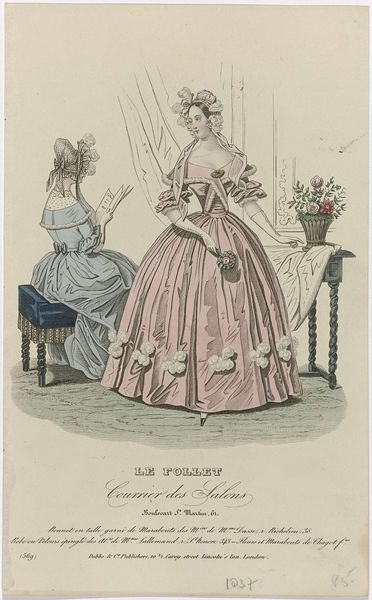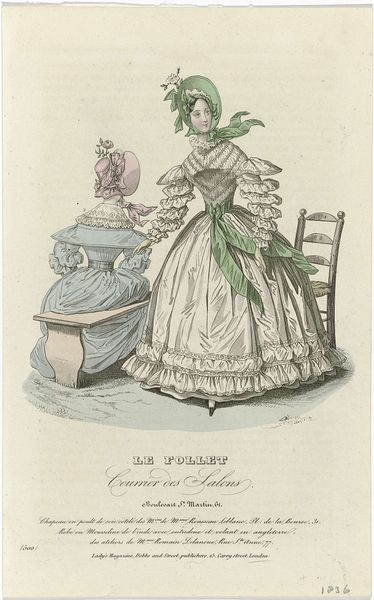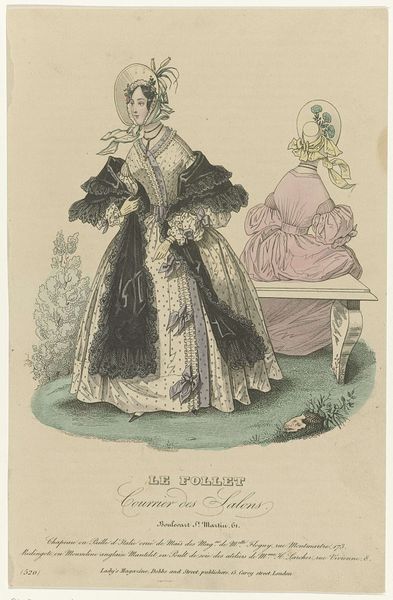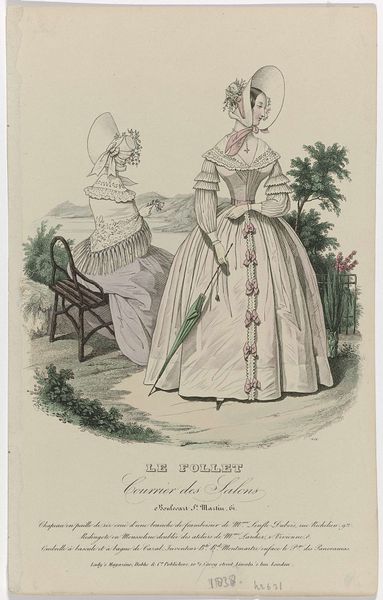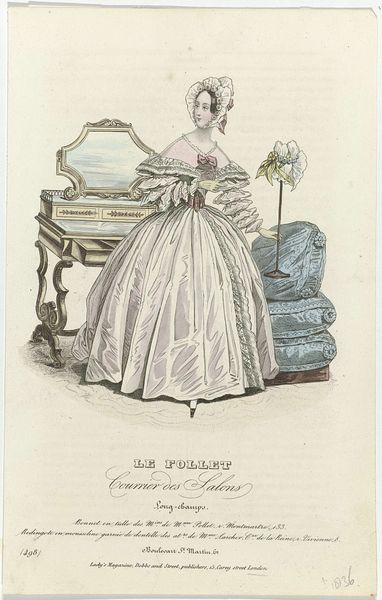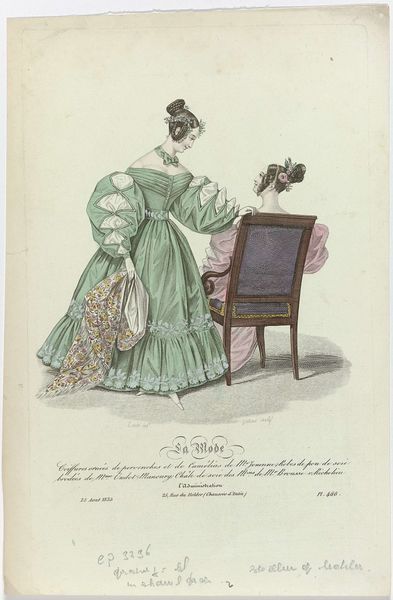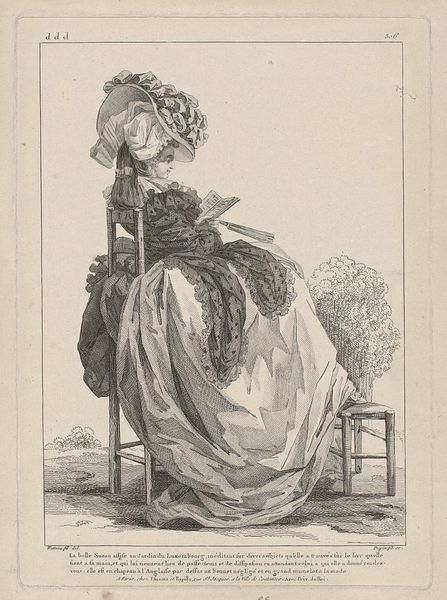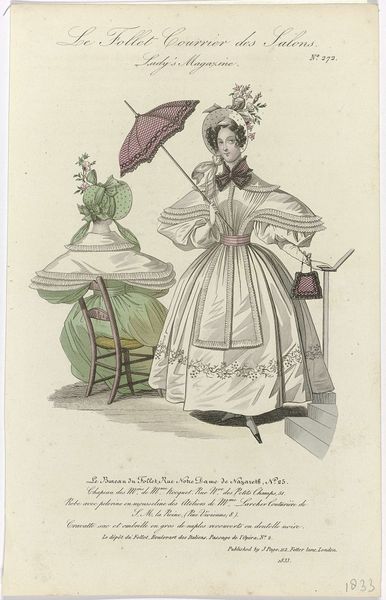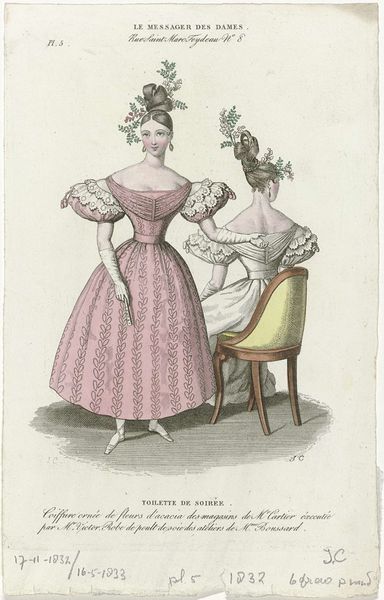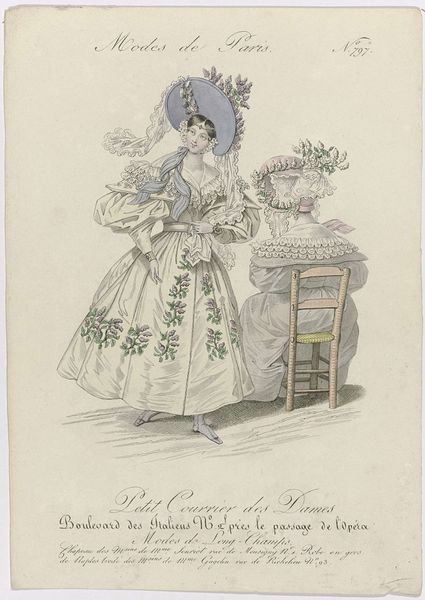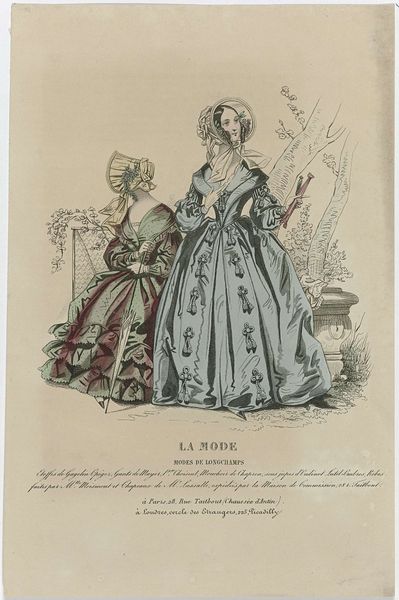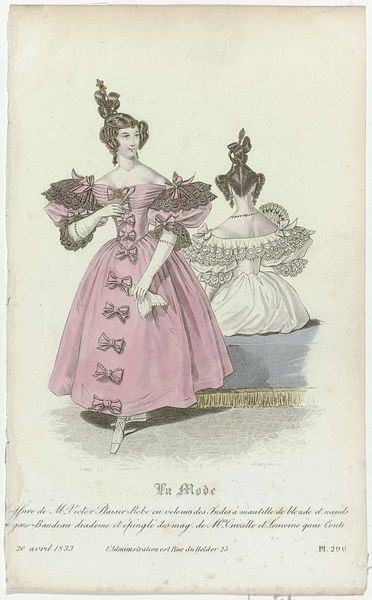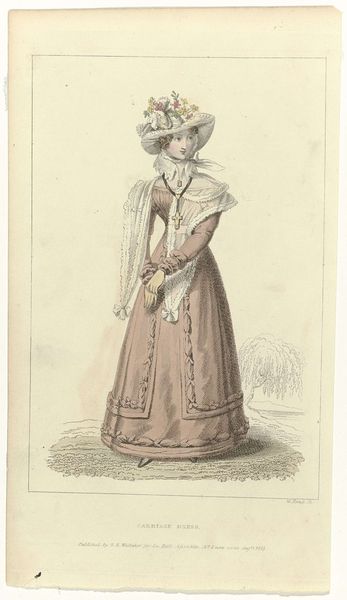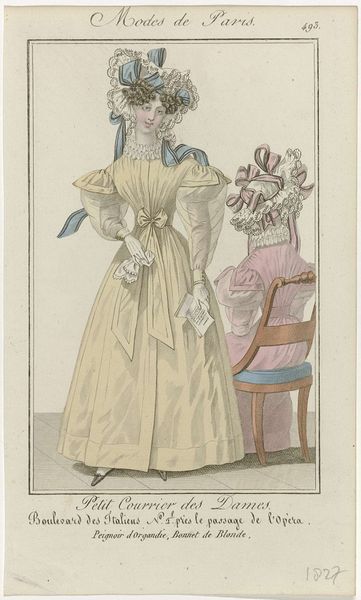
print, watercolor
# print
#
watercolor
#
historical fashion
#
romanticism
#
watercolour illustration
#
genre-painting
Dimensions: height 247 mm, width 153 mm
Copyright: Rijks Museum: Open Domain
This fashion plate, printed in 1837 for the journal Le Follet, shows us the *capote-douillette*, a stylish bonnet and dress combination. We immediately notice the texture and sheen suggesting fabrics like satin, silk, and lace, materials produced in specialized workshops and prized for their luxury and expense. Consider the labor involved in creating such garments. From textile production to the intricate sewing, each piece reflects the work of skilled artisans. The fashion plate itself is also a product of skilled labor, from the artist's initial design to the engraver's meticulous work to translate that design into a reproducible image. The fine lines and delicate coloring required precise handwork, a world away from the mechanized production we know today. Fashion plates like these played a crucial role in disseminating style trends, driving demand for luxury goods, and fueling the fashion industry. By appreciating the making of this image and the garments within it, we recognize the complex interplay of craft, commerce, and social status in the 19th century.
Comments
No comments
Be the first to comment and join the conversation on the ultimate creative platform.
